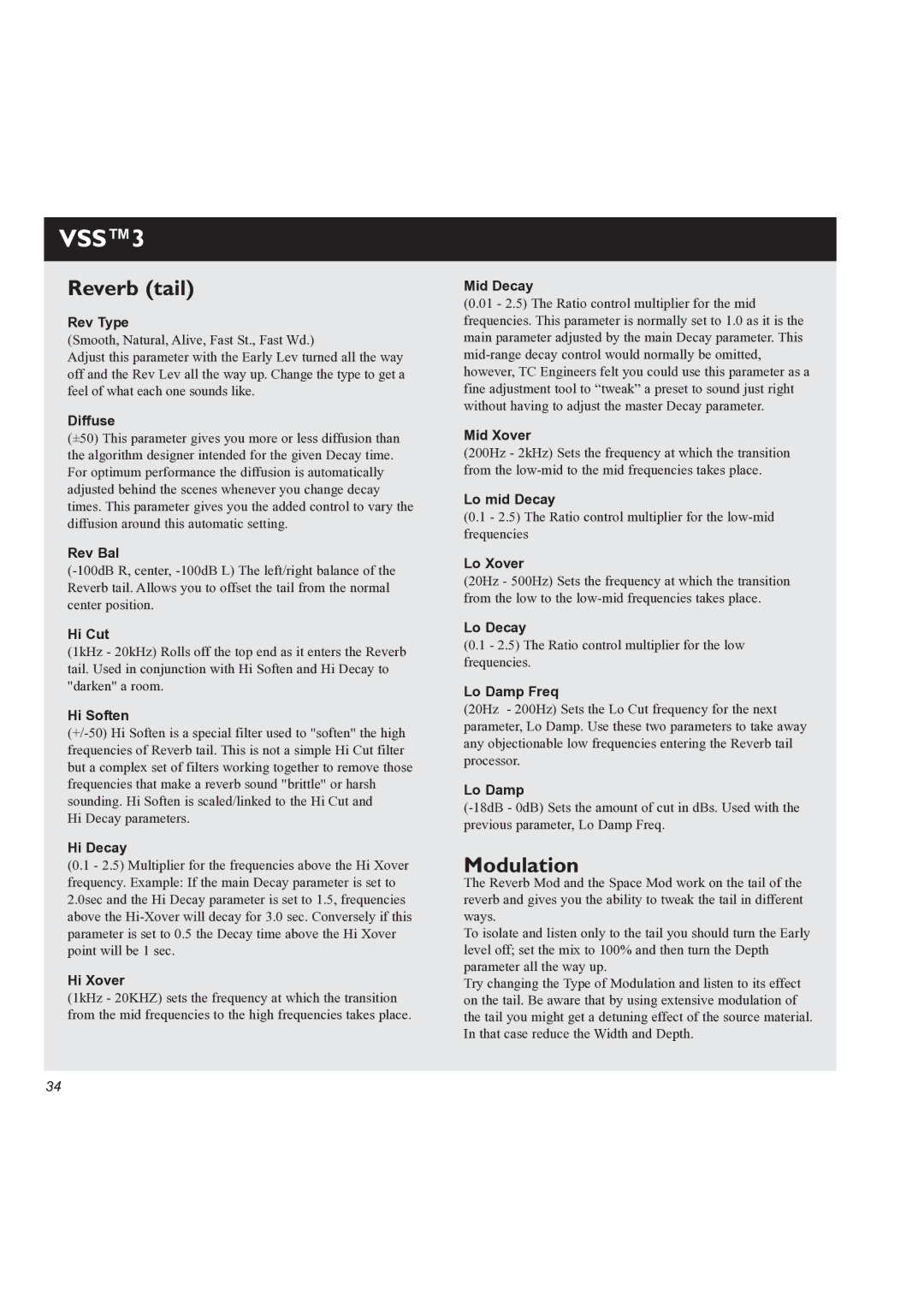
VSS™3
Reverb (tail)
Rev Type
(Smooth, Natural, Alive, Fast St., Fast Wd.)
Adjust this parameter with the Early Lev turned all the way off and the Rev Lev all the way up. Change the type to get a feel of what each one sounds like.
Diffuse
(±50) This parameter gives you more or less diffusion than the algorithm designer intended for the given Decay time. For optimum performance the diffusion is automatically adjusted behind the scenes whenever you change decay times. This parameter gives you the added control to vary the diffusion around this automatic setting.
Rev Bal
Hi Cut
(1kHz - 20kHz) Rolls off the top end as it enters the Reverb tail. Used in conjunction with Hi Soften and Hi Decay to "darken" a room.
Hi Soften
Hi Decay parameters.
Hi Decay
(0.1 - 2.5) Multiplier for the frequencies above the Hi Xover frequency. Example: If the main Decay parameter is set to 2.0sec and the Hi Decay parameter is set to 1.5, frequencies above the
Hi Xover
(1kHz - 20KHZ) sets the frequency at which the transition from the mid frequencies to the high frequencies takes place.
Mid Decay
(0.01 - 2.5) The Ratio control multiplier for the mid frequencies. This parameter is normally set to 1.0 as it is the main parameter adjusted by the main Decay parameter. This
Mid Xover
(200Hz - 2kHz) Sets the frequency at which the transition from the
Lo mid Decay
(0.1 - 2.5) The Ratio control multiplier for the
Lo Xover
(20Hz - 500Hz) Sets the frequency at which the transition from the low to the
Lo Decay
(0.1 - 2.5) The Ratio control multiplier for the low frequencies.
Lo Damp Freq
(20Hz - 200Hz) Sets the Lo Cut frequency for the next parameter, Lo Damp. Use these two parameters to take away any objectionable low frequencies entering the Reverb tail processor.
Lo Damp
Modulation
The Reverb Mod and the Space Mod work on the tail of the reverb and gives you the ability to tweak the tail in different ways.
To isolate and listen only to the tail you should turn the Early level off; set the mix to 100% and then turn the Depth parameter all the way up.
Try changing the Type of Modulation and listen to its effect on the tail. Be aware that by using extensive modulation of the tail you might get a detuning effect of the source material. In that case reduce the Width and Depth.
34
